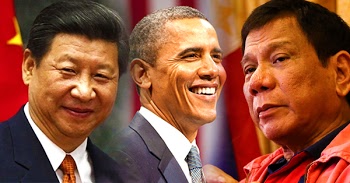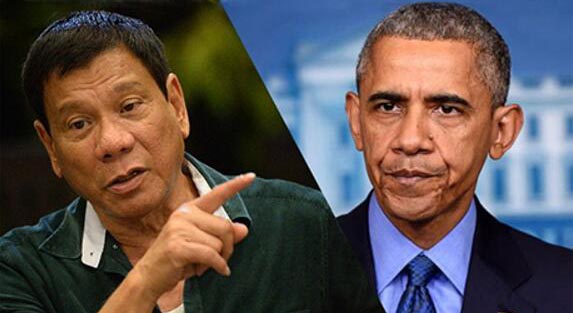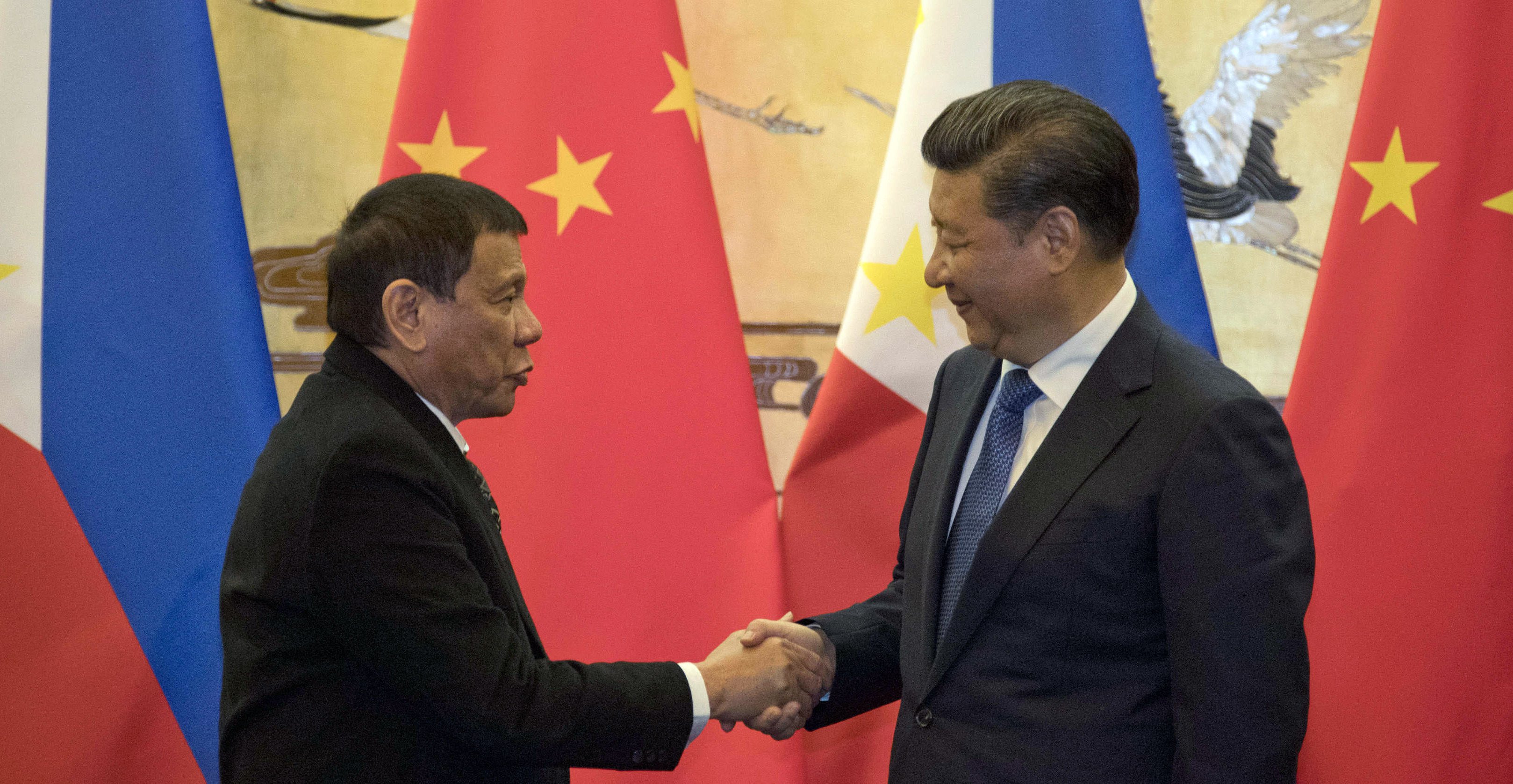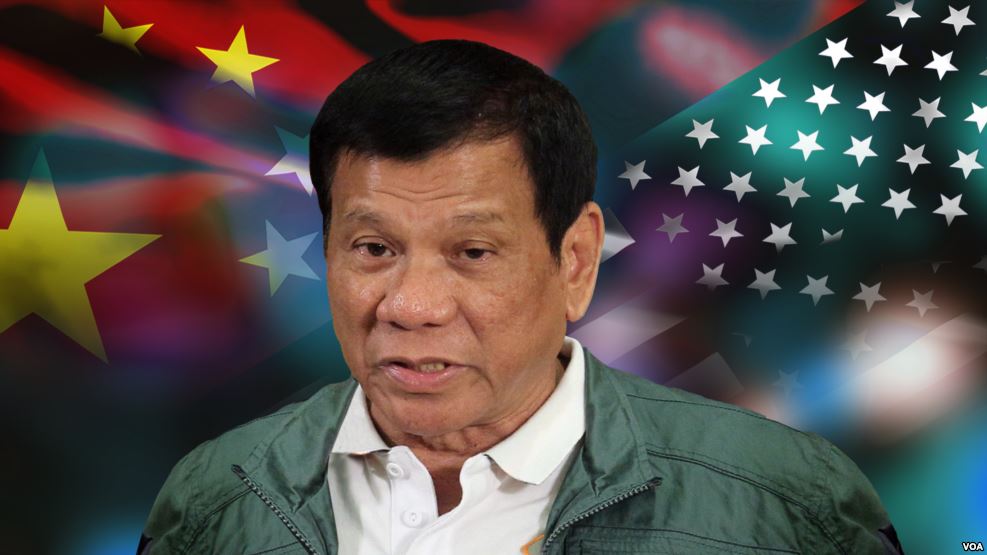Dan Steinbock, Founder, Difference Group
Jan 13, 2017
As long-needed economic reforms are taking off in the Philippines, regime change plans have been prepared in the U.S. State Department against a democratically-elected president who enjoys very high popular support.
Michael Mazza, Research Fellow, American Enterprise Institute
Nov 01, 2016
Philippine president Rodrigo Duterte has been raising hackles across the Asia-Pacific since his inauguration in June. In his latest broadside directed at the United States, Duterte once again asserted that he wanted all foreign troops out of the Philippines and that he would eventually nix the Enhanced Defense Cooperation Agreement (EDCA). Although such a move does not appear to be imminent, it is worth considering its potential implications for the region.

Lucio Blanco Pitlo III, President of Philippine Association for Chinese Studies, and Research Fellow at Asia-Pacific Pathways to Progress Foundation
Nov 16, 2016
Under Duterte’s administration, the Philippines are moving toward major policy shifts, particularly in regards to U.S. and China relations. China is an emerging outbound investor with a demonstrated financial, technological, and engineering capacity to accomplish major infrastructure projects, such as railways, which can have a transformative impact on Philippine economic development. The U.S. has become a quieter ally in the region, and other regional states have long been diversifying both their economic and security partners to spread risk and to avoid getting entangled in big power tussles. Duterte is following these initiatives now, as well.
Richard Javad Heydarian, Professorial Chairholder in Geopolitics, Polytechnic University of the Philippines
Nov 14, 2016
What we are witnessing isn’t necessarily a ‘Duterte wave’ of defections to China at the expense of America. More likely, it is a temporary recalibration on the part certain Southeast Asian states that are unsure of American commitment to the region and eager to avoid direct confrontation with China, which in turn is offering large-scale investment and trade deals in exchange for strategic acquiescence. China is offering lucrative packages of technical skills and soft loans for turbo-charged infrastructure projects. But, it remains to be seen how far this rebalancing will go, as other nations in the region shift away from China.
Wang Yusheng, Executive Director, China Foundation for Int'l Studies
Nov 04, 2016
The “Duterte phenomenon” must have prompted much reflection in Washington, and so it should in Tokyo. It may serve Japan better to think twice about the merits of its subordinate relationship with the US.

Rommel C. Banlaoi, Director, Center for Intelligence and National Security Studies
Oct 31, 2016
Rommel Banlaoi argues that President Duterte’s controversial remarks about the U.S.-Philippine relationship are not a signal of distancing, but rather it is an effort of strategic ambiguity on the part of Duterte. Duterte is creating a relationship with China and the U.S. that will best move forward his domestic policy, a key concern for Duterte; however, strategic ambiguity is a difficult strategy for Duterte, the two super powers, and the international community.
Chen Qinghong, Assistant Research Fellow, China Institutes of Contemporary International Relations
Oct 28, 2016
The Philippine president’s China visit revealed that countries in the region are thirsty for stability, solidarity and common development, and should be eager to eliminate the various misgivings regarding the South China Sea. Countries in and outside the area should cherish the positive effects of the visit and jointly preserve peace and stability in the South China Sea.

Richard Javad Heydarian, Professorial Chairholder in Geopolitics, Polytechnic University of the Philippines
Oct 26, 2016
Philippine President Rodrigo Duterte’s emerging foreign policy is a cocktail of reckless rhetoric and shrewd strategic calculus. The Duterte administration has made it clear that bilateral relations with America are no longer as special as before; it is simply interested in having beneficial relations with all superpowers without any preferential treatment.

Wang Yusheng, Executive Director, China Foundation for Int'l Studies
Oct 17, 2016
The rise and posture of the Philippines president is not an unpredictable eruption but the natural evolution of a changing global environment, and the result will be a more balanced and safer regional order.
Lucio Blanco Pitlo III, President of Philippine Association for Chinese Studies, and Research Fellow at Asia-Pacific Pathways to Progress Foundation
Oct 17, 2016
Track II diplomacy’s results remain mixed, but it takes only one successful attempt to provide concrete and specific agenda items for formal talks. It is within this lens that the Ramos-Fu August 2016 meeting in Hong Kong could be appreciated.
Back to Top

- China-US Focus builds trust and understanding between the U.S. and China through open dialogue among thought leaders.
- Our Offerings
- Topics
- Videos
- Podcasts
- Columnists
- Research Reports
- Focus Digest
- Stay Connected
-
Thanks for signing up!
- Get the latest stories from China-US Focus weekly.